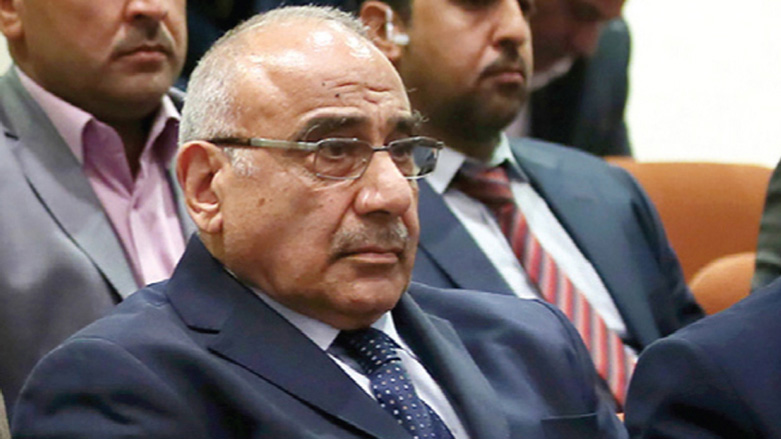Iraqi parliament votes to formally accept prime minister's resignation

ERBIL (Kurdistan 24) – In a special session held on Sunday in Baghdad, the Iraqi parliament voted to accept Prime Minister Adil Abdul Mahdi’s resignation, following two months of national anti-corruption protests that have led to the reported deaths of over 400 participants.
A video has circulated on Iraqi social media, taken within the parliament's chambers by a lawmaker, shows the moment the results of the vote were announced.
لحظة تصويت البرلمان العراقي على استقالة رئيس الوزراء عادل عبد المهدي #العراق pic.twitter.com/Oxr3mkxwWa
— Kurdistan 24 عربية (@arabick24) December 1, 2019
Abdul Mahdi announced his intention to resign on Friday after the bloodiest day of protests yet, during which security forces reportedly killed upwards of 40 demonstrators.
Although some demonstrators celebrated Abdul Mahdi’s announcement, protests seem poised to continue.
When they began two months ago, demonstrators called for improved public services, increased access to jobs, and an end to the corruption that plagues the country’s various institutions. They later also demanded a complete overhaul of the government and denounced the political elite.
Abdul Mahdi said in a statement that his government “did everything possible to respond to the demands of the demonstrators and provide reform packages, employment, plots of land, and important legislative bills.” He went on to stress the “principle of peaceful transfer of power in the democratic system,” adding “achieving the interests of the people is a goal that tops everything.”
The prime minister called on his cabinet members to continue their work until the new government is formed, a process the details of which have not yet been announced.
In another statement on Friday, influential cleric and political kingmaker Muqtada al-Sadr suggested the nomination of a replacement prime minister through a referendum of five candidates to be offered to the public.
Read More: Sadr: Abdul Mahdi's resignation does not mean the end of corruption in Iraq
He also suggested that the new prime minister choose his cabinet “far from parties, blocs and, militias and away from sectarian, partisan, nationalist, and factional quotas, as well as activating the role of the judiciary and avoiding the bickering of parliament, whose members are no less corrupt than the government.”
He continued, “Anyone who sympathizes with us within the realm of parliament should involve himself in the formation of the government only by voting with conviction and taking the opinion of the people directly and under independent and non-corrupt supervision.”
